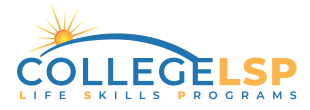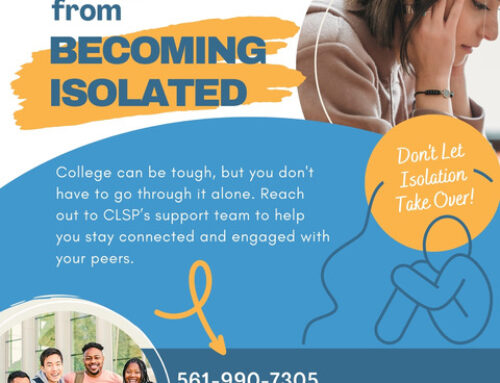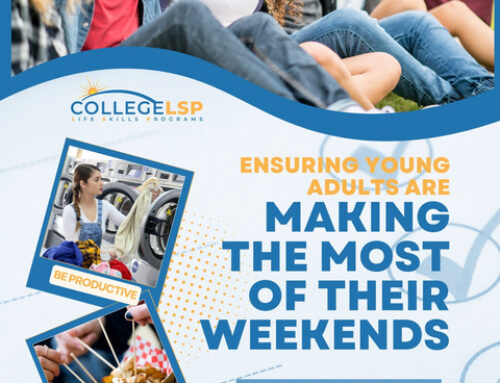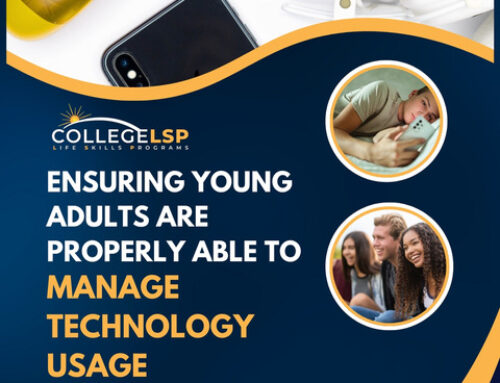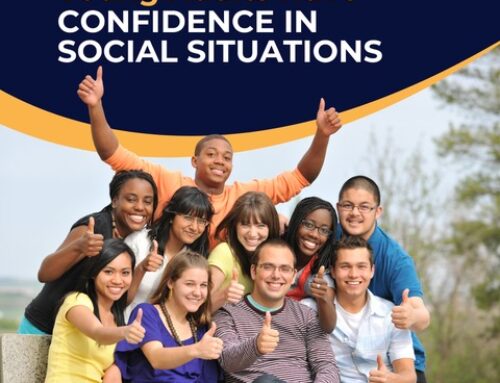But I want to know…
One neurodivergent young man has found that in college, a lot of people like to keep their private life just that, private. Many do not like answering questions about their family, partners, and personal life while still being in the developing stages of friendships, but the young man had a hard time knowing when it was appropriate, if at all, to ask. He would often ask people he just met if they had a good relationship with their parents, how many people they have dated, and many other things that overstepped their boundaries, causing them to end their friendship before it has even started.
As time went on and this trend continued, the young man found himself rather lonely in college. He was struggling to make and maintain friendships, and as the fall semester ended, he told his parents he was unhappy in college and wanted to drop out. Worried for their son, they reached out to the College Life Skills Program for help. There, he met with a coach weekly so he could try and strengthen his social skills by learning and applying strategies such as waiting for his friends to become open with him first about their private life and learning what questions are possibly over-stepping boundaries. As he received this coaching, with a level of accountability, his ability to handle independent life flourished, preventing him from dropping out due to his inability to make and nurture friendships as a result of overstepping boundaries in social situations.
Although they typically do not mean to, it is not uncommon for many neurodivergent people to overstep boundaries. It may be because they struggle with understanding social cues, and if their peer does not verbally express their discomfort about a question, but rather shows it through facial or body language, some neurodivergent individuals may not be able to notice this unhappiness and proceed to do it again. One source states that, “It can be difficult to navigate … boundaries; many … people are very literal and do not naturally have a filter or awareness of the social etiquette rules that neurotypical individuals typically pick up as they grow from childhood to adulthood.” (Experia, 2022). Knowing what is acceptable to say to co-workers, bosses, professors, and peers is important, especially since one person’s boundaries can be very different from another’s. Despite this ability not coming as naturally to most neurodivergent individuals, it is still important that they learn how to implement it into their daily lives so they can effectively make and maintain friendships on their own. If not, places like college, work, and overall independent life can become a lonely one, but with the right help, knowing the distinction and how to not overstep boundaries can be made easy.
At the College Life Skills Program, our team of Doctoral and Master level professionals utilizes a series of highly individualized strategies, services, and techniques to help neurodivergent young adults who are college bound, in college, and even after college succeed in and after their transition into adult life. We help teach them life skills such as how to respect boundaries so they can be successful in the work world and in life as well as help them learn how to balance independent life on their own, and other executive functioning skills, social skills, and emotional maturity. If your young adult is struggling with life skills, such not overstepping boundaries on their own or the transition into college and adulthood, CollegeLSP has the tools to aid them in achieving and generalizing such skills.
Click here and call now to schedule your FREE 20-minute individualized screening.
Dr. Eric J. Nach, Ph.D., M.Ed., A.S.D.C., is a Developmental and Behavioral Specialist who specializes in Autism, ADHD and related disorders. Dr. Nach is the founder of the College Life Skills Program where he and his team of professional’s help develop the Emotional Maturity, Executive Functioning, Life Skill and Social Abilities of college students and those high school students preparing for college. The CollegeLSP is a subsidiary program of the Support For Students Growth Center, located in Boca Raton, FL and providing services nationwide
Autism and boundaries. Experia USA. (2022, February 23). Retrieved January 23, 2024, from https://www.experia-usa.com/blog/autism-and-boundaries/

